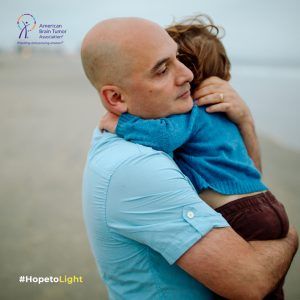The Society for Neuro-Oncology (SNO)/American Society of Clinical Oncology (ASCO) Central Nervous System (CNS) Metastases Conference brought together leading experts, researchers, and clinicians from around the world to discuss the latest advancements in the understanding and treatment of metastatic brain tumors.
Held earlier this month in Denver, Colorado, this annual event served as a crucial platform for sharing cutting-edge research, innovative therapeutic strategies, and emerging technologies aimed at improving patient outcomes.
To recap this important meeting, we met with Dr. Michelle Kim, Clinical Professor of Radiation Oncology at University of Michigan. Dr. Kim co-chairs the National Cancer Institute (NCI) Brain Metastases Interest Group, is the principal investigator of multiple clinical trials, and attended the SNO/ASCO CNS Metastases Conference.
She shared findings most pertinent to those diagnosed with a metastatic brain tumor in a Q&A with the ABTA.
For patients diagnosed with a metastatic brain tumor, can you share an overview of important takeaways that can impact future treatment and care?
Dr. Kim: In partnership with patients and patient advocates, it is a pivotal time where scientists and clinical trialists, in conjunction with funding agencies, regulators and pharmaceutical partners have the opportunity to converge on priorities with the potential to significantly advance the field. This will not be accomplished by a single entity or organization, but through a collaboration of stakeholders committed to seeing meaningful advances realized for our patients with CNS metastases. A key theme of this entire conference was collaboration.
Through growth of dedicated patient-centric clinics for patients with CNS metastases at various medical centers, there is increasing opportunity to partner with community sites to share best clinical practices for the coordinated care of patients with CNS metastases, and to raise awareness of clinical trials.
Lowering the barriers to entry of clinical trials for patients with CNS metastases is increasingly now recognized as a key priority. Through the continued efforts of researchers partnering with patients and patient advocates, more trials should be matched to the patients who would benefit the greatest.
What was the theme of the scientific findings presented at this conference?
Dr. Kim: Advancements for the treatment of CNS metastases hinge on more effective models able to reflect the milieu of therapies patients receive that impact tumor evolution. Ultimately, understanding the unique factors that enable the initiation and evolution of CNS metastases is a key step towards developing effective therapies for the treatment and prevention of this condition.
Please share any discoveries related to patients diagnosed with leptomeningeal disease.
Dr. Kim: One of the most encouraging parts of this conference was seeing advances in the biology and therapeutic opportunities for the most advanced form of CNS metastases – leptomeningeal disease. As a field, we are starting to move from clinical trials that excluded patients with this condition, to those that specifically offer treatments for this rare patient population including novel combinations of intrathecal immunotherapies, targeted therapies, nanoliposome therapy as well as advanced local therapy.
Is there anything else you would like to share that a patient diagnosed with brain metastasis would find of value or create hope?
Dr. Kim: Now more than ever, the field is coming together to advance the research and care of patients with central nervous system (CNS) metastases. Through the recent launch of national and international initiatives, the field stands ready to tackle some of its greatest challenges and to shape the future landscape of CNS metastases research and treatment.
The ABTA is dedicated to providing comprehensive support, resources, and hope to individuals diagnosed with metastatic brain tumors. ABTA’s Chief Mission Officer, Nicole Willmarth, Ph.D., presented as an invited speaker at this year’s SNO/ASCO conference and spoke about the Metastatic Brain Tumor Collaborative.
Visit our Metastatic Brain Tumors webpage to learn more about CNS malignancies and view our resources.




















